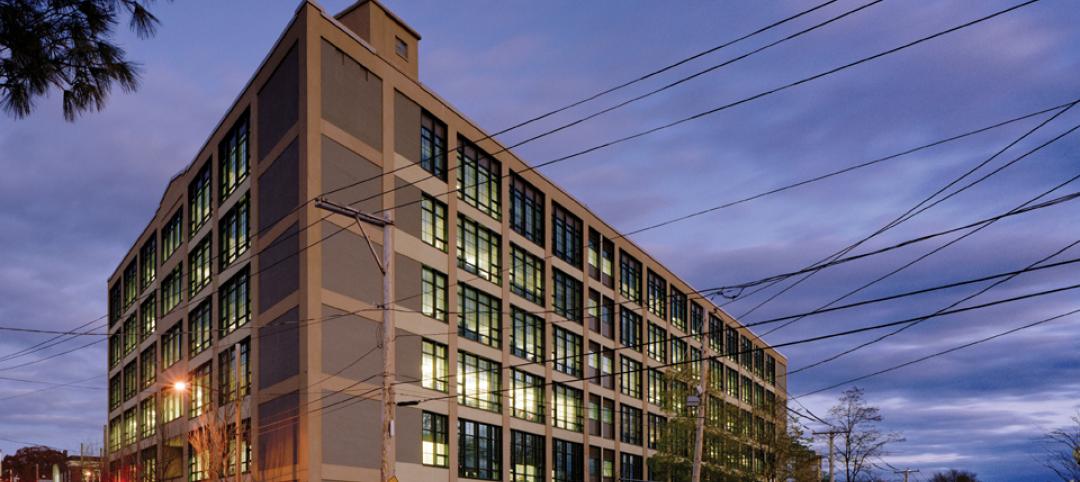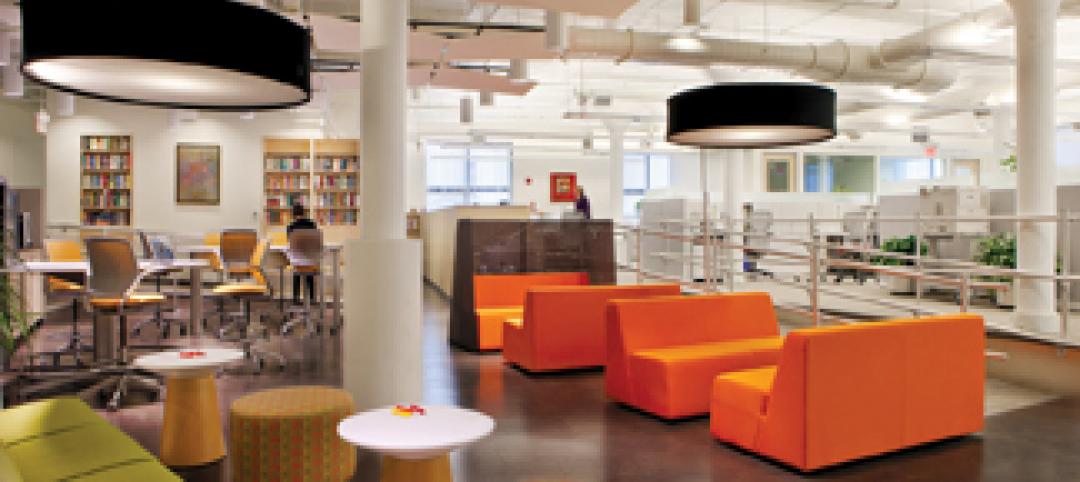WeWork, the New York-based urban workspace designer and redeveloper that’s one of the fastest-growing companies in the U.S., has acquired Fieldlens, a six-year-old producer of construction management applications that allow for more efficient on-site communications.
Most construction projects “are broken social networks,” says Doug Chambers, Fieldlens’ founder. His company’s app helps make a jobsite environment more like Facebook or a social feed, where everyone on site is communicating in real time, all the time.
An example Chambers gives is a project manager who is walking a site, and using the app on his smartphone to send observations, pictures, confirmations, and directives to other crew members. Chambers says that on one jobsite in Buffalo, N.Y., the Fieldlens app is facilitating 1,000 interactions per day, on average, among the 80 to 100 workers on site.
“Fieldlens lets people get back to work,” and not get bogged down on a lot of administrative and paperwork duties, says Chambers.
For the past two years, WeWork has been one of Fieldlens’ biggest customers. And its use has “ramped up pretty rapidly” over the past six months, says Chambers, as WeWork “has grown like crazy.”
Founded in 2010, WeWork currently has more than 120,000 members globally working out of 149 locations in 45 cities in 13 countries. WeWork so far has redeveloped more than 8 million sf of space to coworker offices. It is about to expand into India and Colombia.
In a recent blog, WeWork’s Chief Product Officer David Fano said the company is opening between five and 10 new locations a month. “And we’ve only begun to scratch the surface of global demand.” The company has also recently expanded into co-living redevelopment.
“WeWork is a train moving at 200 miles per hour,” says Aaron Fritsch, WeWork’s head of product systems and operations. “We’re a mission-driven company, and what we love about Fieldlens is how it’s focused on changing and improving the industry. It saw that there’s a better way that [project management] could be done.”

WeWork had been one of Fieldlens' biggest customers before it acquired the six-year-old company this month. Image: WeWork
Fano said that WeWork is “obsessed by the intersection of technology and the construction industry.” And among the things that Fieldlens’ app brings to the table, says Fristch, is a continuous feedback loop that bridges the communications gap that too often separates not only jobsite personnel, but also designers and facilities managers.
As a single company WeWork and Fieldlens will continue to develop and refine construction tools that are made available to the industry at large. “As part of WeWork, we’ll have more resources to continue to focus on our goal of making the work-lives of construction professionals more efficient,” says Chambers.
Related Stories
| May 25, 2011
Developers push Manhattan office construction
Manhattan developers are planning the city's biggest decade of office construction since the 1980s, betting on rising demand for modern space even with tenants unsigned and the availability of financing more limited. More than 25 million sf of projects are under construction or may be built in the next nine years.
| May 18, 2011
Lab personnel find comfort in former Winchester gun factory
The former Winchester Repeating Arms Factory in New Haven, Conn., is the new home of PepsiCo’s Biology Innovation Research Laboratory.
| May 16, 2011
Virtual tour: See U.S. Green Building Council’s new LEED Platinum HQ—and earn CE credits
A virtual tour of the U.S. Green Building Council's LEED Platinum HQ is available. The tour features embedded videos, audio podcasts, and information on building materials and products used throughout the space. By taking the virtual tour, professionals can earn GBCI Continuing Education hours for the LEED AP with specialty and LEED Green Associate credentials.
| May 11, 2011
DOE releases guide for 50% more energy-efficient office buildings
The U.S. Department of Energy today announced the release of the first in a new series of Advanced Energy Design Guides to aid in the design of highly energy efficient office buildings. The 50% AEDG series will provide a practical approach to commercial buildings designed to achieve 50% energy savings compared to the commercial building energy code used in many areas of the country.
| May 10, 2011
Google hires Ingenhoven Architects to design new Mountain View office
The current Googleplex is straining at the seams and yet the company is preparing its biggest hiring surge ever, so Google decided now’s the time to build its own office space—a first for the Internet giant. The company hired Ingenhoven Architects, a German firm that specializes in sustainable architecture, to create plans for what could be a 600,000-sf office.
| Apr 13, 2011
Office interaction was the critical element to Boston buildout
Margulies Perruzzi Architects, Boston, designed the new 11,460-sf offices for consultant Interaction Associates and its nonprofit sister organization, The Interaction Institute for Social Change, inside an old warehouse near Boston’s Seaport Center.
| Apr 13, 2011
Red Bull Canada HQ a mix of fluid spaces and high-energy design
The Toronto architecture firm Johnson Chou likes to put a twist on its pared-down interiors, and its work on the headquarters for Red Bull Canada is no exception. The energy drink maker occupies 12,300 sf on the top two floors of a three-story industrial building in Toronto, and the design strategy for its space called for leaving the base building virtually untouched while attention was turned to the interior architecture.
| Apr 13, 2011
Former department store gets new lease on life as MaineHealth HQ
The long-vacant Sears Roebuck building in Portland, Maine, was redeveloped into the corporate headquarters for MaineHealth. Consigli Construction and local firm Harriman Architects + Engineers handled the 14-month fast-track project, transforming the 89,000-sf, four-story facility for just $100/sf.













